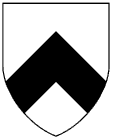
LIVES OF THE BISHOPS OF EXETER
JONATHAN TRELAWNY, of an ancient and valiant Cornish family, was born at Trelawny, in the parish of Pelynt, on 24th March, 1650, and educated at. Westminster School, and thence elected a scholar in Christ Church, Oxford, which college he entered in Michaelmas term, 1668, where, to use his own expression, "he ate his bread for more than twenty years." By the death of his elder brother John, shortly before the decease of their father, Sir Jonathan Trelawny, the second baronet, he succeeded to the heirship of the title and estates. He was then a beneficed clergyman-Rector of Southill since 4th October, 1677, and of St. Ives, 12th December that year, and had distinguished himself at Christ Church College, Oxford. His sovereign, King James II, appointed him to the see of Bristol (in opposition to Archbishop Sancroft's advice, as we learn from Trelawny's letter of 10th December, 1687), to which he was consecrated at Lambeth on 8th November, 1685. That wrong-headed king, on 4th May, 1688, when the national mind was in a state of feverish excitement, insisted that his proclamation for liberty of conscience should be read in the churches. Dr. Trelawny was one of the seven bishops who petitioned against the measure; and for this exercise of what they considered a prudent, legal, and conscientious right, were committed to the Tower. After three weeks' imprisonment, they were brought to trial, when an honest jury pronounced their acquittal, to the joy of all classes.
When the king translated Dr. Lamplugh to York, he appointed Dr. Trelawny his successor to Exeter, hoping that "this promotion would have warmed his heart to a sense of grateful loyalty and dutiful attachment; but it produced a contrary effect, and enabled him to wield his powerful influence in Cornwall in favour of the revolution" ('Stuart Papers'). Can Macaulay be correct in stating that, "as Bishop of Bristol, he was the first to welcome tho Prince of Orange's troops into that second city of the realm" ('Hist. of England,' vol. ii. p. 529)?
According to Prince, the bishop made Trelawny, the family-seat in the parish of Pelynt, his usual place of residence, "a measure less convenient to the occasions of his clergy and the public exercise of charity and hospitality." There he erected and consecrated a large domestic chapel on Sunday, the 23rd November, 1701. Within six years later, viz. on 14th June, 1707, Queen Anne translated the prelate to Winchester. Dying at Chelsea on 19th July, 1721, aged 71, his mortal remains were conveyed to the family vault at Pelynt.
By his wife Rebecca (Hole), only daughter and heir of Thomas Hole, of Bascombe, Devon (whom he married on his birthday), he had a family of thirteen children. His son Edward lived to be appointed Governor of Jamaica; Henry shared the fate of Sir Cloudesley Shovel, lost on the Gilston Rock, on 22nd October, 1707. None of his sons left issue, nor any of his daughters except Letitia, born 11th October, 1689, who married her cousin, Henry Trelawny; and Rebecca, born on Saturday, 4th January, 1695, old style, married to John Fownes Buller, of Morvall, Esq.
To the honour of Dr. Trelawny we may state, that whilst Bishop of Exeter he refused 7000l. for the reversion of the manor of Cuddenbeck, in the parish of St. Germans, as he thought it worth 2000l. more, and would not injure his successor in this see. On renewing a term in the manor of Addersbury, whilst Bishop of Winchester, he instantly gave, of the fine received, the sum of 500 guineas to the Corporation of the Sons of the Clergy, and 1000l. towards the Incorporated Society for the Propagation of the Gospel.
Arms: - Argent, a chevron sable.
